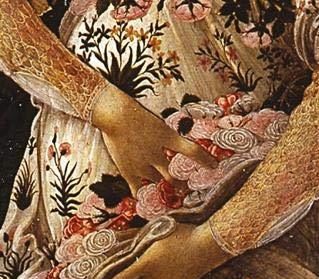Thomas Tyrrell finds much to admire in the latest poetry collection, The Bramble King, from award-winning novelist Catherine Fisher.

What happens when a writer of fantasy turns to poetry? For J.R.R. Tolkien, it was another form of world-building. His short lyrics found their way into The Hobbit and The Lord of the Rings, while his long unfinished epic poems became a part of the intricate history of The Silmarillion. Neil Gaiman, rather endearingly, prints his poems alongside his short stories, mixing sestinas and pantoums with twisty magic-realist tales.
For Catherine Fisher, the poetry in The Bramble King poetry collection forms a parallel career to the children’s fantasies she’s more famous for, and The Bramble King is her fourth book of verse from Seren. Her method, it emerges in the reading, is a distillation: like dried figs or fairy fruits in syrup, this slim collection contains the essence of four or five different books, carefully preserved and put aside.
We open The Bramble King in a playful mood with Imaginary Planets, a six-poem sequence that treads in the footsteps of Italo Calvino’s more extensive Invisible Cities. Strange and surreal, planets like Gravitas and Babel reconnect the boundless possibilities of science fiction with the marvellous islands encountered by legendary adventurers like Sinbad, Mael Dúin and St Brendan.
The next sequence of The Bramble King, The Shop is a condensed memoir of Fisher’s own childhood, living above her grandfather’s paint and decorating shop in Newport. To the mundane surroundings of Gwent, Fisher brings a sense of haunting mystery rivalled only by Arthur Machen’s memoirs of neighbouring Monmouthshire. Obscure rooms and cupboards hold memories of the war-torn past, and mere scraps and offcuts of wallpaper become the very stuff of poetry.
Slices of wallpaper, curliques and scraps
deep as the leaves in an autumn heap.Some of it sticky with paste, some torn,
textures of artex and polystyrene,velvety swirls of flock, the William Morris
birds, the crunched brown forests.
The poems that follow in The Bramble King are more miscellaneous, recurring to that haunted childhood but also gesturing elsewhere, to the arts, the landscape, the changing seasons. The coherence here diffuses: Fisher is at her most distinctive when she assumes the serene voice of the storyteller, tempered by the sensuous of Angela Carter’s retellings, and becomes less memorable as she tends towards description rather than narration. I approached the diptych From the Mabinogi warily, feeling like Seren’s previous collections have picked much of the meat off these bones, but the poems here succeed by taking a new point of view: Gronwr Pebr fashioning his spear ’in a Gloria of sparks’ rather than yet another Blodeuwedd soliloquy.
In The Bamble King, the tension regathers in ‘The Building and the Boy’ and the six-poem sequence ‘La Belle au Bois Dormant’ which seems to embody an interest in a Sleeping Beauty-style narrative where the adversary isn’t the evil fairy or Disney’s Maleficent but the castle itself or the thorns that hedge it in, a haunted place, an emblem of wilderness rebelling against the human agency. It’s hard to escape the notion these themes are biding their time, waiting to escape into a future novel. Fisher hints as much with one of her last poems, which shares the title of her Tir na n’Og award-winning novel, The Clockwork Crow. Here the focus is not on the novel’s Gothic mysteries but on the Promethean creation of the crow itself.
It will turn its head, speak one word.
Will rise, jerkily at first then
smooth, a shadow swooping under the ceiling
beating against the window,till he opens the glass
and lets it out, up into the stars and it flies
till it’s a dark thing against the galaxies
and then is gone.
The ending of The Bramble King is all the more effective for knowing how the poem evolved into the book, and I laid the collection aside hoping soon to witness the ontogenesis of one or more of the embryonic stories here contained.
The Bramble King by Catherine Fisher is available now from Seren.
Thomas Tyrrell is a regular contributor to Wales Arts Review.











